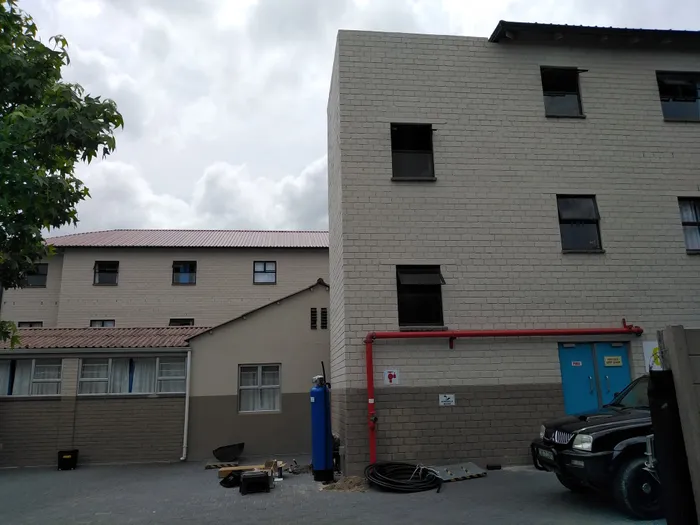CPUT student hostel built without City approval

A third storey was added to Harfield House student resience without prior City approval.
The owner of a student hostel in Claremont is facing a R100 000 fine after a third storey was added to the building without City approval.
Harfield House, a Cape Peninsula University of Technology (CPUT) student residence, is at 77 Third Avenue, Claremont on the corner of Peffer Street.
Construction was completed at the beginning of the year and added 51 new rooms and eight parking bays, but the Harfield Village Association (HVA) raised a red flag, saying there had been no municipal approval.
HVA committee member and architect Bruce Burmeister said they had received a City notice in February saying residents had until the beginning of April to object but the building work had already been completed and students had moved in.
“When I read the notification, my immediate thought was, ‘Has this not been built already?’ As I often drive to the Spar, I have seen the building work progressing for months. I was aware it had been completed and occupied.”
Mr Burmeister said that in a meeting with the HVA the developers had claimed to have been given authorisation but that was not the case, and the association had lodged a formal complaint with the City at the beginning of March.
The building is owned by a company, Erf 925 Parow Diskin Court (Pty) Ltd, and through its architect, Gordon Hart Architects, it maintains it was never its intention to build illegally.
According to Gordon Hart Architects, the history of the building goes back to 1944, when it was a home for unwed mothers. Since then it has been used as a residence for, among others, recovering alcoholics and students of Abbotts College. There was previously no formal parking space on the premises.
Erf 925 Parow Diskin Court (Pty) Ltd bought the property in 2019 and in November of that year entered into a lease agreement with CPUT for student accommodation. “This agreement was structured in a way that a certain number of students would initially be accommodated in the existing residence on the property and that, commencing February this year, the residence would be fully available,” he said.
In a statement, Mr Hart said a development application had been made in March last year but due to the Covid-19 pandemic it had taken the City three months to respond.
“The architects, on behalf of the owners, interacted with senior officials at the City to try and move this severely delayed process along,” Mr Hart said.
Plans for the third storey and eight parking bays had been submitted last October but had taken until the following month to be cleared by the City’s land-use management section and referred to its building-development section for approval.
“For various reasons, including City officials being unable to find the proof of payment for the application fees, the departure application was eventually advertised to interested and affected parties in early 2021,” he said.
The owners had not set out to construct the building illegally, he said.
“It was circumstances, Covid-19 and an overloaded City department that forced them into this situation. Throughout the process, they have continuously tried to regularize the situation and made every effort to communicate with council officials to accelerate the process.”
City spokesman Luthando Tyhalibongo confirmed unauthorised building work had taken place on the property without the prior approval from the City as required by the Municipal Planning By-law.
The owners would be fined for flouting the City’s Development Management Scheme and for contraventions relating to on-site parking requirements, access, the addition of the third storey and the internal division of rooms on the lower two storeys.
He noted that the site was correctly zoned for a boarding house.
Mr Tyhalibongo said that last November a building inspector had served two notices on the owner for unauthorised building work, but despite that the work had been completed.
A meeting of the Municipal Planning Tribunal on Wednesday November 16 had decided unanimously on a R100 000 penalty, he said.
CPUT spokeswoman Lauren Kansley said Harfield House was a leased CPUT residence that had passed the “stringent check” that all of the institution’s leased accommodation for students had to submit to.
“A dispute between the City of Cape Town and the landlord falls outside of CPUT’s scope. However, we are currently engaging with the landlord about this matter and any repercussions this may have on CPUT and its students,” she said.
